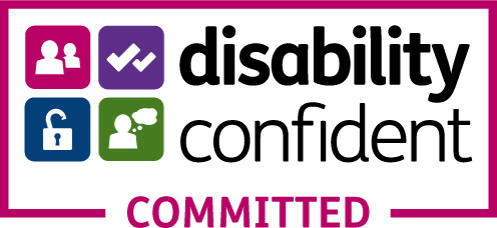How do you fit a giraffe into the fridge?
The weird and wacky world of interview questions…
Interviews are nerve-wracking, no matter how many times you’ve done them. Not knowing what you’re going to be asked, being put on the spot, and the possibility of an awkward silence when you’re not quite sure how to respond, can make us all feel anxious.
Thankfully, most of the time, we know what to expect. We can spend some time before researching the company, going over our skillset, and coming up with some well-informed answers to those stereotypical interview questions.
So what would you do if you were sitting comfortably in a room, halfway through a so-far-so-good interview, and were suddenly asked “What would you do if you found a penguin in your freezer?”
Oddball questions are increasingly being used by employers to gain an insight into potential candidates. According to Susan Ruhl, a managing partner at OI Partners, strange questions are not used to trick a person, but are used to uncover qualities about a candidate that can’t be determined from a CV or two-minute drill.
They help to uncover how you handle unexpected problems and situations, whether you’re a good fit for the team, and how creative you are.
With this in mind, it might not feel so easy to prepare for your next big interview. Although you can’t know exactly what you’ll be asked, it could be useful to understand what employers are looking for when they throw out an unexpected question.
Here’s our insight into how to answer some tricky, unusual interview questions.
How do you fit a giraffe into the fridge?
Why is the question being asked?
This question is testing out a person’s creative thinking skills, and if they can solve tricky, unusual challenges which could arise in the workplace. Employers are more interested in how you get to an answer rather than what your actual answer is, so remember to think through your response out loud, says Rusty Rueff, a career and workplace expert at Glassdoor.
How could you answer?
It’s important to demonstrate that you need some facts about the situation before jumping to a conclusion. “Can you provide me with further details, such as how big the giraffe is? How big is the fridge?” Thinking out loud, asking questions, shows you’re really considering different options and trying to come up with a well-thought out solution, “What tools do I have to work with in this space? Can I empty out the rest of the fridge’s contents?”
How would you explain Facebook to your grandma?
Why is this question being asked?
Rusty Rueff says this question is used so the interviewer can see how a candidate can explain an idea in a way which is meaningful and relevant to the person they’re talking to. It’s forcing the candidate to break down a (seemingly) complex concept. This one is often used in sales roles – to find something someone understands from the past in order to comprehend the future.
How could you answer?
“My grandmother uses the internet, but doesn’t know much about social networking. For this reason, I’d say, Grandma, I know you like to keep in contact with your family and friends, and I know you enjoy using the internet to find out interesting information”.
“So, there is a website, which is called Facebook. It allows you to connect and stay in touch with your friends and family, but you can also follow companies and keep up to date with their news, or new products. Would you like me to show you?”
This shows that you have really thought about who you are talking to, and are explaining the concept in a way which is relevant to the end user.
Would you rather fight a horse-sized duck, or 100 duck-sized horses?
Why is this question being asked?
This question is simply a creative way of testing the candidates deductive reasoning skills. This requires you to make assumptions and make a recommendation of the best choices and course of action to take. Again, your thought process is the most important part of your answer – your end choice doesn’t matter so much, says John Lees, author of Job Interviews: Top Answers to Tough Questions.
How could you answer?
Remember to show each and every step of your thinking!
“That’s a hard one, so, I reckon both might kill me. But, I would start by evaluating how aggressive each of the animals might be. Horses can kick and bite. Even if they are small, being hunted by a pack of them would leave me with no escape route. For that reason, I’d go with the duck!”
So there you have it. Even if you’re faced with a completely random question in your next interview, you can now be (sort of) prepared for it. Interviewers don’t seem so bothered about what your answer is, and are more interested in the thought process and justification behind it.
Just remember to think about your oddball question thoroughly, and say it all out loud. Plus, it gives you a chance to show your creative and funny side, too! Good luck!
Our Awards and Accreditations













 03333 235 900
03333 235 900 Login / Register
Login / Register
